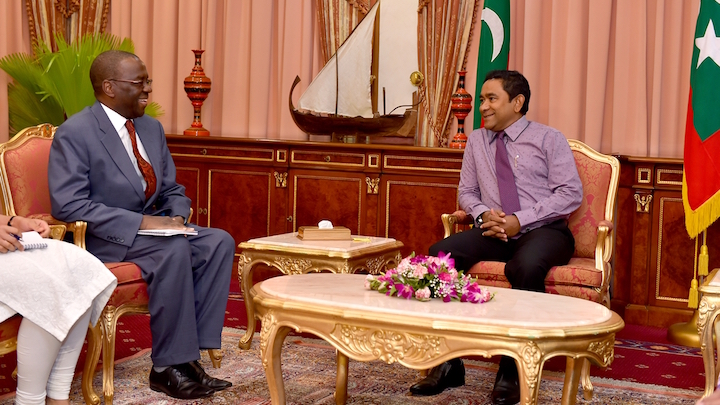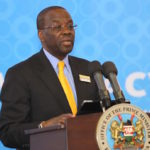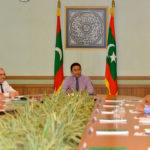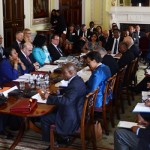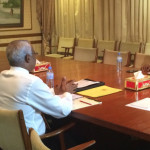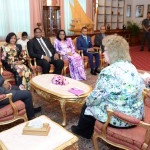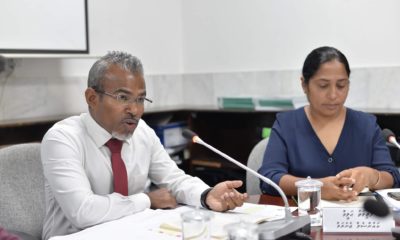The Commonwealth secretary general’s special envoy to the Maldives briefed the organisation’s watchdog last week about a “severe democracy deficit” in the country and recommended placing pressure on the government.
“The curtailment of fundamental freedoms of expression and assembly has created an environment of fear and intimidation,” reads Dr Willy Mutunga’s 14-point briefing note to the Commonwealth Ministerial Action Group, according to Asian News International.
“The long-term detention of political leaders has eroded the government and the judiciary’s legitimacy. The inability of political leaders to participate in political life could prevent a credible presidential election in 2018,” he warned.
After a second review of the Maldives’ progress on six priority areas, the CMAG placed the Maldives on its formal agenda last Friday, citing the lack of progress in resolving an intractable political crisis triggered by the jailing of opposition leaders in early 2015.
Mutunga, a former Kenyan chief justice who was appointed in June, visited the Maldives twice during the past two months to meet with key stakeholders, including President Abdulla Yameen, the chief justice, and opposition figures.
While the Maldives needs technical assistance, Mutunga cautioned that it “should not be a substitute for the crucial actions that are needed to be taken at the political level by the country’s politicians who have influence and access to the machinery of the state.”
Calling for “root and branch judicial reform,” he described the Maldivian judiciary as “deeply politicised and compromised, and willing to disregard the principles of natural justice”.
Mutunga “recommended that the Commonwealth ‘consider a full range of options’ to bring the required political pressure on the Government of the Maldives to act positively in the political space,” ANI reported.
The CMAG, a watchdog body comprised of a rotating group of eight foreign ministers, had also warned of suspension from the Councils of the Commonwealth if progress is not made by its next meeting in March 2017.
Both the EU parliament and the UK have also warned of targeted sanctions against top government officials.
In the wake of the CMAG meeting, the government promptly renewed invitations for opposition parties to join all-party talks. The main opposition Maldivian Democratic Party has also heeded the CMAG’s call for time-bound dialogue without preconditions, forgoing its previous demand for the release of jailed politicians, including former President Mohamed Nasheed.
But Mutunga said his meetings with Nasheed and diplomats in Colombo, New Delhi and London confirmed his view that “political dialogue has no prospect of advancing in the current environment in the Maldives, though it is badly needed.”
During his visit to the Maldives, Mutunga also met former Defence Minister Mohamed Nazim and Adhaalath Party leader Sheikh Imran Abdulla, both of whom under house arrest, as well as jailed MP Ahmed Mahloof.
“There is a dire need for political consensus in the long term, while in the short term, the government must demonstrate both the will and the leadership to help the nation emerge from severe democratic deficit,” he told the CMAG.
According to the Commonwealth, Mutunga’s mandate is to “consult with all relevant stakeholders to encourage the strengthening of a pluralist, multi-party democracy, steps towards credible and inclusive presidential elections in 2018 and the advancement of reforms to give full effect to the separation of powers.”
The Commonwealth described Mutunga as a reformist and an academic with “an expansive career in the areas of constitutional reform, mediation and coalition building.”

